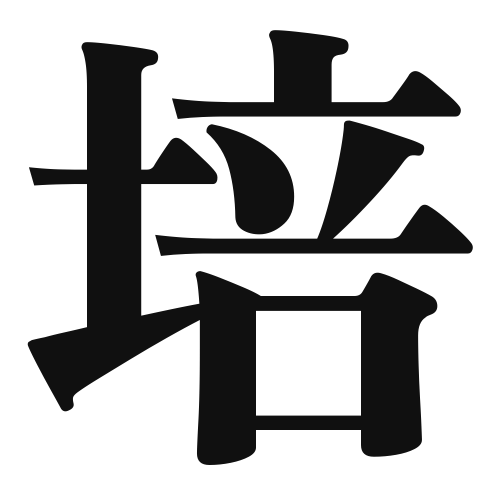1. Overview of Meaning
The kanji “培” (pronounced “bai”) means to cultivate, nurture, or foster. It is often associated with the idea of growth and development, particularly in agriculture and education.
2. Formation and Radical
Formation of the Kanji: The kanji “培” is a compound character that combines elements to convey its meaning. It consists of the radical “土” (earth) and the phonetic component “培” (which suggests the action of nurturing or cultivating).
Radical: The radical of “培” is “土,” which relates to earth or soil, emphasizing its connection to cultivation and growth.
3. Examples of Usage
Common Words and Phrases: Some frequently used words that include “培” are:
- 培養 (baiyō) – cultivation, fostering
- 培地 (baichi) – culture medium
Example Sentences in Daily Conversation:
- この植物を培養するのは簡単です。
(It is easy to cultivate this plant.) - 彼は子供たちの才能を培うことに情熱を持っています。
(He is passionate about nurturing the talents of children.)
4. Synonyms and Antonyms
Similar Kanji: A similar kanji is “育” (iku), which also means to nurture or raise, but it often refers specifically to raising children or animals.
Antonyms: An antonym of “培” could be “破” (ha), which means to break or destroy, indicating the opposite of nurturing and growth.
5. Cultural and Historical Background
Connection to Japanese Culture: In Japanese culture, the concept of “培” is significant in agriculture, where nurturing the land is essential for producing food. It also extends to education, where teachers cultivate the minds of their students.
Proverbs and Idioms: One relevant proverb is “育てることは愛すること” (Sodateru koto wa aisuru koto), which translates to “To nurture is to love,” highlighting the deep connection between nurturing and affection in Japanese culture.
